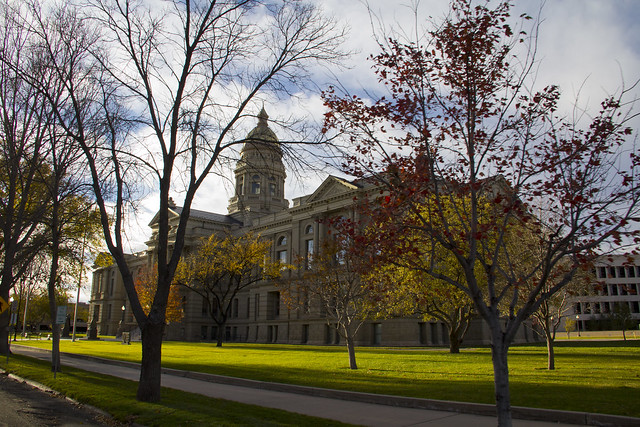
Wyoming has earned a reputation for being a no-income tax state. That is about to change, and change big. In the 2019 session the legislature considered HB220, a corporate income-tax bill, which would have applied to corporations in retail and accommodations, with more than 100 shareholders.
The bill went nowhere then, but it is now back – with a vengeance. The Revenue Committee, led by State Senator Cale Case and State Representative Dan Zwonitzer, is pushing a modified, even more burdensome version of the bill.
And it has a poison pill in it: the platform for a personal income tax.
On the corporate side, the new version – currently known as 20LSO-0073 – no longer limits its application to just retail and accommodations. It now hits broadly and should have every corporation in the state on its toes.
The tax is being sold as a “recapture” of tax revenue going to other states. Simply put, proponents say that retail corporations pay taxes in their domicile state and would simply shift to paying that tax revenue to Wyoming. This is not true, as the recapture mechanism does not apply universally, but even when it does, the argument is false. Take Lowe’s as an example: domiciled in North Carolina they pay a 2.5 percent tax in that state, while the Wyoming rate would be 7 percent.
A substantial tax hike, for sure.
Amazon, who is moving into brick-and-mortar retail, pays no corporate income tax in their home state of Washington. How likely would they be to open a Whole Foods store (a chain they recently bought) in a state that just created a seven-percent income tax?
A corporate income tax in Wyoming is a bad idea. Even worse is the idea of a corporate and a personal income tax – and that is exactly what 20LSO-0073 is opening for.
The last section of the bill, on pages 23 and 24, nullifies the income-tax ban currently in place in Wyoming. It explicitly allows for the creation of both a corporate and a personal income tax.
The section defines a taxpayer, liable to pay state income tax, as someone “required to file federal form 1120”. By simply adding form 1040 to that sentence, the legislature can create an income tax for individuals as well.
With the stroke of a governor’s pen, Wyoming would go from no income tax to a seven-percent tax on both corporations and individuals.
But we are not done yet. The income-tax bill does not come unaccompanied. The Revenue Committee is also considering a property tax that would raise the state share by nine millings. In addition, it has discussed a sales tax on services and higher municipal sales taxes. All of these taxes will very likely be voted on in the 2020 legislative session.
The total fiscal value of all these taxes runs in the hundreds of millions of dollars. To get an idea of how bad this is, suppose the bill for all of them was handed out to every Wyoming resident. The cost to an average family of four would be about $3,200 per year in higher taxes.
This is not just a thought experiment. Higher taxes, even when formally burdening corporations, sooner or later make their way into the pockets of working families.
With one of the weakest economies in the country and the largest government workforce of all states, Wyoming is in no place to absorb even one of the proposed increases in the tax burden.
Sven R Larson, Ph.D., is a Wyoming-based political economist

